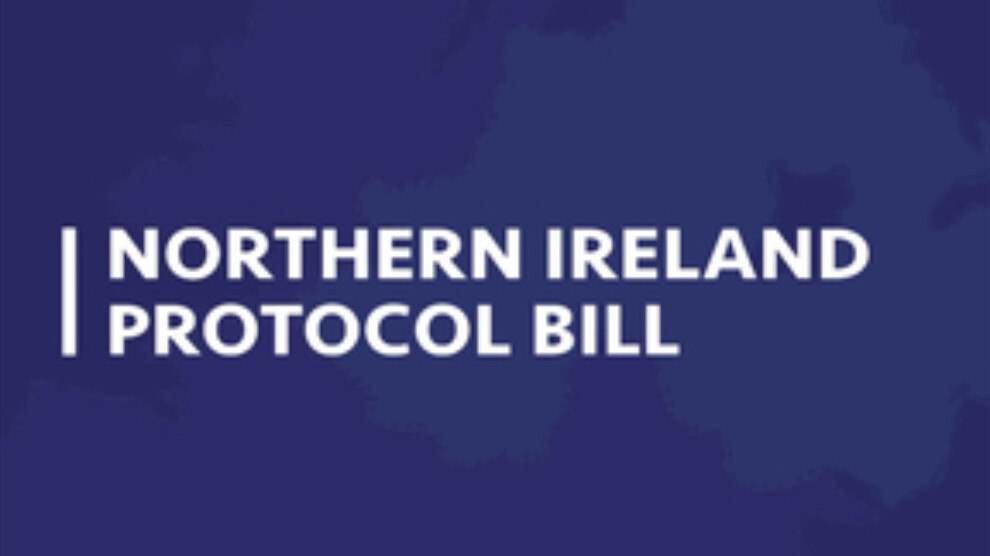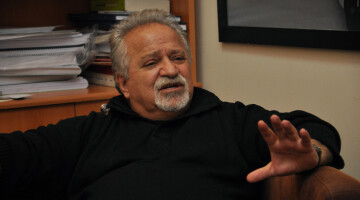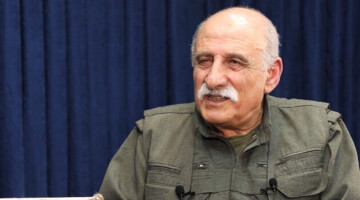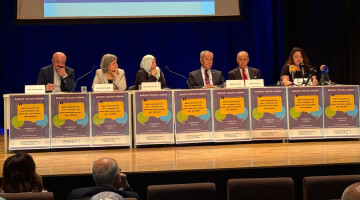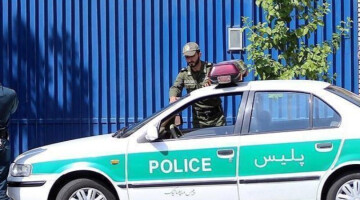The legislation includes wrecking terminology which specifically tears up almost all aspects of the Irish Protocol. It reverses three years of negotiations concluded by the EU and British Prime Minister Boris Johnson in January 2020.
The move is set to provoke international economic trade sanctions against London, a full trade war between Britain and the EU, and most seriously, the potential reintroduction of militarised checkpoints in the border area.
The scale of the unilateral legislation, introduced this evening at Westminster, has come as a major shock to the Dublin government, the European Union, and business figures who had lobbied for the protocol to remain unchanged.
The text of the legislation states that it would apply “notwithstanding that it is not compatible with the Northern Ireland Protocol or any other part of the EU withdrawal agreement”, and that it cannot be bound by or referred to the European Court.
The second reading, and the first opportunity for MPs to debate the main principles of the legislation, takes place today.
Michelle O’Neill, the vice president of Sinn Féin, described the legislation as “utterly reckless”.
She was among a majority of the North’s Assembly members, including both nationalists and unionists, who had written a joint letter to Boris Johnson. Members of Sinn Féin, the SDLP and the Alliance Party said they “strongly” rejected Johnson’s claim to be protecting the Good Friday Agreement.
“To complain the Protocol lacks cross-community consent, while ignoring the fact that Brexit itself – let alone hard Brexit – lacks even basic majority consent here, is a grotesque act of political distortion,” they wrote.
“Your claims to be acting to protect our institutions is as much a fabrication as the Brexit campaign claims you made in 2016.”
They concluded: “We will resolutely oppose this reckless Bill and continue to promote post-Brexit solutions on the basis of trust and honesty.”
Taoiseach Micheal Martin dismissed an attempt by Johnson earlier today to play down his actions as “no big deal”.
“For a country like the United Kingdom to renege on an international treaty is something that does present a new low point because the natural expectation of democratic countries, like ourselves, the UK, and all across Europe, is that we honour international agreements that we enter into,” Mr Martin said.
“And this agreement was ratified by the British parliament, it was approved by the British prime minister.”
Dublin’s Minister for Foreign Affairs Simon Coveney warned the plan would “ratchet up” tensions. He said that the legislation would be “deeply damaging to relationships on these islands”.
He also noted that Brexit negotiator Liz Truss had not engaged with the EU “in any meaningful way” since February. The Protocol was the negotiated solution to the “hard Brexit pursued by the UK government”, he said.
“The UK’s unilateral approach is not in the best interest of Northern Ireland and does not have the consent or support of the majority of people or business in Northern Ireland.
“Far from fixing problems, this legislation will create a whole new set of uncertainties and damage relationships,” Mr Coveney said.
Political commentators have warned that scandals such as partygate and the mounting economic crisis in Britain have left Johnson under the control of hard-right Tory backbenchers and unionists. However, there has been no indication yet that the move has convinced the DUP to drop its veto of multi-party power-sharing in Belfast.
The EU is reported to be ready to take legal action against London as soon as Wednesday.
In a statement, the European Commission’s Vice-President Maroš Šefčovič said the Protocol “protects the 1998 Good Friday (Belfast) Agreement in all its dimensions”.
“After countless hours of intensive, line-by-line negotiations, it was the one and only solution we could jointly find to protect the hard-earned gains of the peace process in Northern Ireland, while addressing the challenges created by Brexit, and the type of Brexit chosen by the UK government.”
He said the idea of renegotiating the Protocol is unrealistic.

